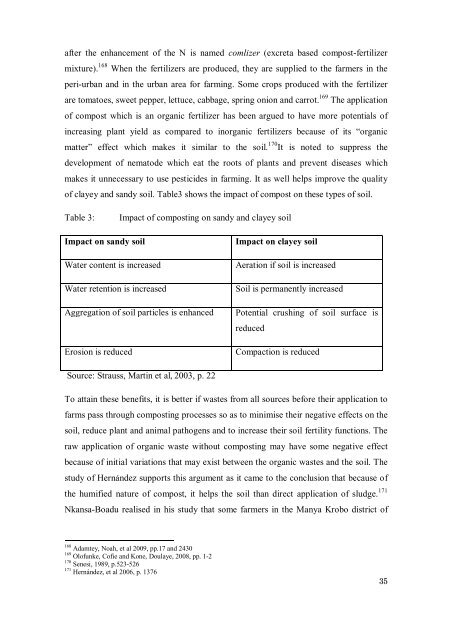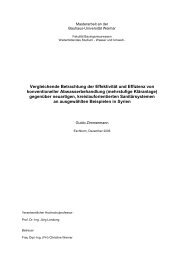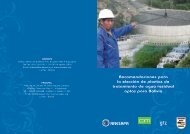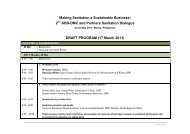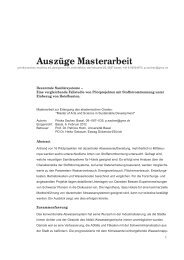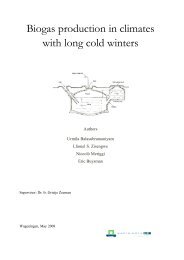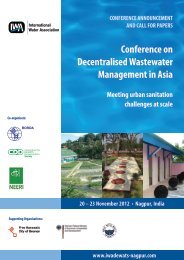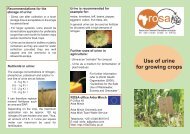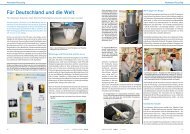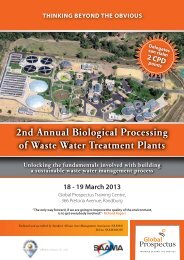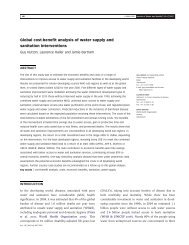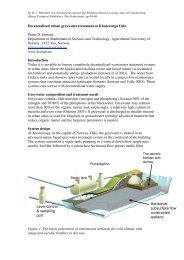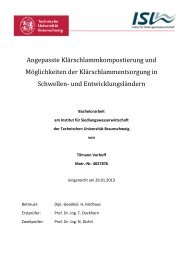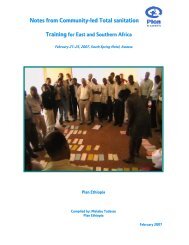A QUANTITATIVE APPROACH TO PREDICT ... - SuSanA
A QUANTITATIVE APPROACH TO PREDICT ... - SuSanA
A QUANTITATIVE APPROACH TO PREDICT ... - SuSanA
You also want an ePaper? Increase the reach of your titles
YUMPU automatically turns print PDFs into web optimized ePapers that Google loves.
after the enhancement of the N is named comlizer (excreta based compost-fertilizer<br />
mixture). 168 When the fertilizers are produced, they are supplied to the farmers in the<br />
peri-urban and in the urban area for farming. Some crops produced with the fertilizer<br />
are tomatoes, sweet pepper, lettuce, cabbage, spring onion and carrot. 169 The application<br />
of compost which is an organic fertilizer has been argued to have more potentials of<br />
increasing plant yield as compared to inorganic fertilizers because of its “organic<br />
matter” effect which makes it similar to the soil. 170 It is noted to suppress the<br />
development of nematode which eat the roots of plants and prevent diseases which<br />
makes it unnecessary to use pesticides in farming. It as well helps improve the quality<br />
of clayey and sandy soil. Table3 shows the impact of compost on these types of soil.<br />
Table 3:<br />
Impact of composting on sandy and clayey soil<br />
Impact on sandy soil<br />
Water content is increased<br />
Water retention is increased<br />
Aggregation of soil particles is enhanced<br />
Erosion is reduced<br />
Impact on clayey soil<br />
Aeration if soil is increased<br />
Soil is permanently increased<br />
Potential crushing of soil surface is<br />
reduced<br />
Compaction is reduced<br />
Source: Strauss, Martin et al, 2003, p. 22<br />
To attain these benefits, it is better if wastes from all sources before their application to<br />
farms pass through composting processes so as to minimise their negative effects on the<br />
soil, reduce plant and animal pathogens and to increase their soil fertility functions. The<br />
raw application of organic waste without composting may have some negative effect<br />
because of initial variations that may exist between the organic wastes and the soil. The<br />
study of Hernández supports this argument as it came to the conclusion that because of<br />
the humified nature of compost, it helps the soil than direct application of sludge. 171<br />
Nkansa-Boadu realised in his study that some farmers in the Manya Krobo district of<br />
168 Adamtey, Noah, et al 2009, pp.17 and 2430<br />
169 Olofunke, Cofie and Kone, Doulaye, 2008, pp. 1-2<br />
170 Senesi, 1989, p.523-526<br />
171 Hernández, et al 2006, p. 1376<br />
35


